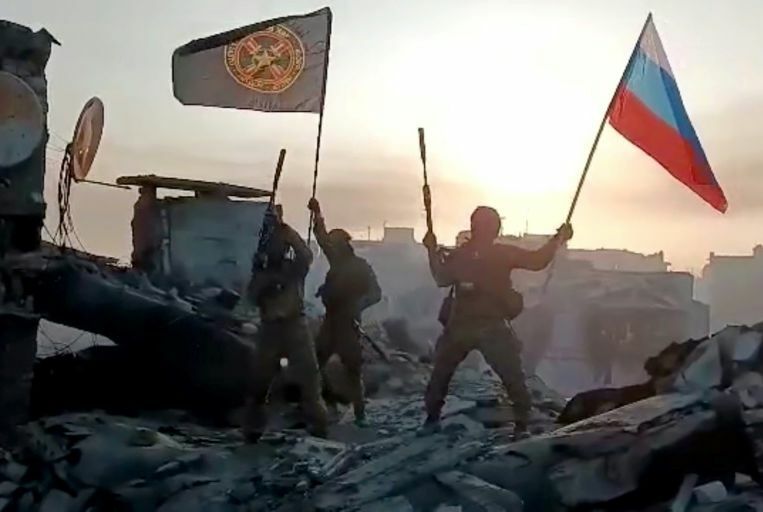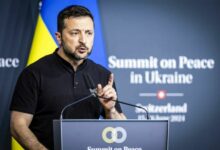Russia pulled deeper into costly battle for Bakhmut as Kyiv readies offensive

As the battle for the frontline city of Bakhmut continues, Moscow finds itself being drawn deeper into an increasingly costly conflict, while experts suggest that Kyiv is preparing for a major offensive.
Despite Russia’s claims of having taken control of the city, which Ukraine denied, the capture of Bakhmut does not offer a significant strategic advantage in terms of launching attacks or reinforcing defences. However, Moscow made the city’s capture a primary objective, resulting in one of the longest and deadliest battles of the war.
US President Joe Biden remarked at the G7 summit in Japan that Russian casualties in Bakhmut alone have exceeded 100,000, including both dead and injured. With Ukraine reclaiming kilometres of territory to the north and south of the city this month, Russia has been compelled to bring in additional troops. The UK Ministry of Defence noted on Saturday that these reinforcements could number in the thousands.
The US-based Institute for the Study of War reported that Ukraine’s attacks on Bakhmut’s flanks have forced Russian troops to allocate scarce military resources, likely as intended by Ukrainian command. Although Ukraine has downplayed speculation that these advances signal the beginning of a long-awaited offensive, drawing more Russian troops into the deadly fight in Bakhmut offers significant advantages for Kyiv’s counterattack efforts, reports Bangkok Post.
Phillips O’Brien, professor of strategic studies at St. Andrews University in Scotland, explained that Ukraine needed to weaken the Russians as much as possible before launching a counteroffensive and buy time to get their forces ready. He suggested that fighting for Bakhmut could achieve both of these goals. The timing and focus of Ukraine’s offensive have been subject to months of speculation, while Kyiv has remained mostly silent except for requests for more weapons from its supporters.
Meanwhile, Russia has been reinforcing hundreds of kilometres of the frontline with tank barriers, trenches, and troops. The outcome of the battles, which will follow a significant influx of Western armaments, could either undermine future support or increase pressure on Kyiv to negotiate. O’Brien noted that the Ukrainians might be waiting to attack where they believe the Russians are weakest.
In recent weeks, Ukraine’s President Volodymyr Zelensky has been on a series of major foreign trips, advocating for more and larger weapons. He secured a pledge for more missiles from Britain and a multi-billion-euro package from Germany, as Europe intensifies its support for Ukraine. Zelensky also visited Hiroshima to personally appeal to G7 leaders, whose backing is crucial for Kyiv.
With the G7 summit concluding, Zelensky could soon return to Ukraine. In Kyiv, soldiers received the news about Bakhmut with scepticism, having heard previous claims of the city’s capture. A staff sergeant named Volodymyr, speaking on the condition that his surname not be used, said, “Everyone is trying to figure out when the offensive will start already. We know we have the equipment already and the machinery. We’re all just waiting for the decision from command.”
Latest Thailand News
Follow The Thaiger on Google News:


























